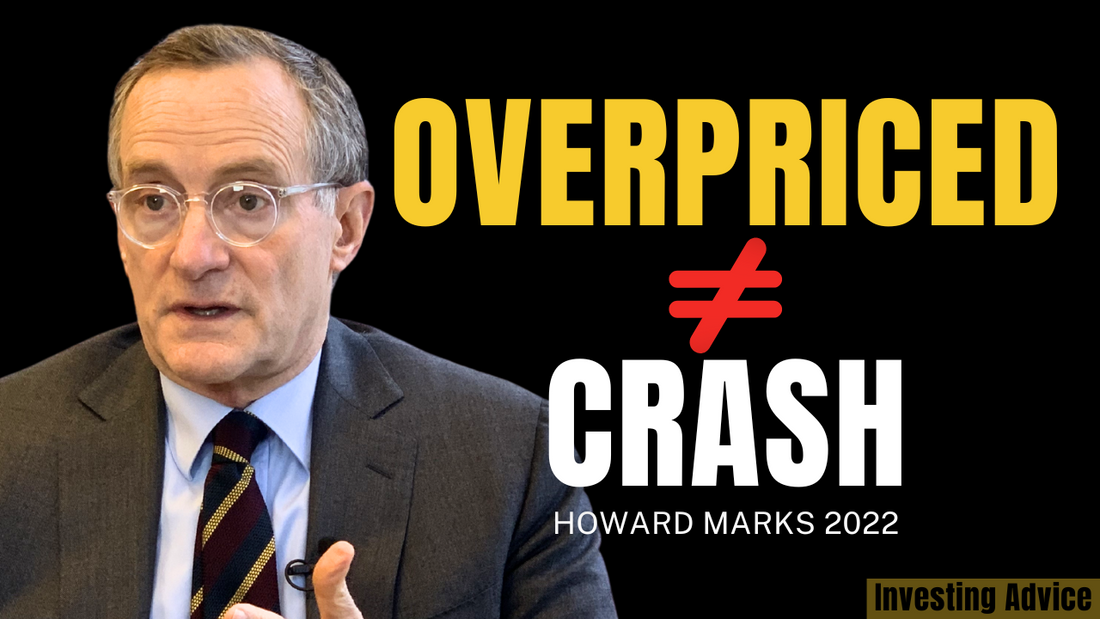
Howard Marks on Overpriced Doesn’t Mean Crash Tomorrow | Talks at GS 2022
[Transcript]
KATIE KOCH: Last question on the market cycles. So, in your first book, you include the poor man's almanac for investing. And it's a checklist.
HOWARD MARKS: Facetious. Well, it's facetious, of course. Semi-facetious.
KATIE KOCH: So, there are some things to look for to see whether your sentiment is negative or positive. And basically, if a sentiment is too positive, you want to hold onto your wallet is, like, a quick summary of it.
HOWARD MARKS: Yeah, yeah.
KATIE KOCH: So, do GPs have all the power? Do LPs have all the power? Are the lenders—
HOWARD MARKS: In negotiating terms of funds.
KATIE KOCH: And then another one was lenders are eager or they're reticent. Capital is abundant. Capital is scarce. Somewhere in the verbiage you put in there that if you're popular at a cocktail party, that's a warning signal that things are too euphoric. But if you go through that, I'm not going to ask you to make predictions, but you think about that framework we've just laid out here, where are we in this cycle? Because you said we can know where we are now.
HOWARD MARKS: Well, I think we're in moderate territory today. You know? And I have not—some people started calling bubble two years ago, June of '20. I haven't called bubble at all. I think things are high, but not crazy. You know? I think that valuations have always been reasonable relative to interest rates. It happens that interest rates couldn't stay as low as they were. So, valuations have proved to be vulnerable. But I just don't think it's crazy. And now I think that the events of the last six months have taken the bloom off the rose that most of the excesses have been driven out. So, you know, again, I think reasonable.
In thinking about coming here this morning, and you mentioned that I had more correct forecasts than I admit, but the truth is they weren't forecasts. They were just observations of current conditions. But nevertheless, when I was working on the book about market cycles with my son Andrew, who is a very good professional investor, I said to him, "Andrew, you know, I think when I look back," I do admit, I said, "I think most of my market calls have been correct." He says, "Yeah dad. That's because you did it five times in 50 years."
But it was a very profound thing he said because five, six, seven, whatever it is, times in my career, prices were either here or here. And when prices are at absurd extremes, the case, the logic for a market call is very strong. And the probability of being right is very high. But not when it's here or here, or here or here, or here or here. You know? And that's really the difference.
KATIE KOCH: And we're here?
HOWARD MARKS: Well, I think we're here. But the point is, here—I mean prices here have always collapsed, whatever here is defined as. But if I say to you what's the probability of a decline in six months? Here, you might say it's 95. You would never say 100 to anything, in my opinion. But here, it may be 75. And here, it may be 55. And then when you pass intrinsic value and you're selling below intrinsic—well, what's the probability that the next six months are up? 55. 75. 95.
So, you know, one of the biggest mistakes you can make is to think that overpriced and going down tomorrow are synonymous. Markets that are overpriced often keep going. And you know, well, Keynes said it best of anybody. He said markets could remain irrational longer than you can remain solvent. So, somebody who bets that a market which is irrational is going—a market is too high. We say that's irrational. Somebody who bets heavily that that means it's going down tomorrow could lose his shirt or her shirt because markets often are overpriced and become more overpriced and more overpriced and more overpriced and more overpriced.
That's why we have words like rising market, bull market, bubble. And if it were true that every overpriced market reverts and becomes fairly priced, then we would never get a bubble because they would stop going up here. But sometimes they go to here and sometimes they go to here. When they get here, the call was pretty safe. Especially if you add the word "eventually." So, what that means is, as long as you realize that nothing is sure to happen in this business, every irrationality can be exceeded, that means that you should try to bulletproof your affairs so that it may be likely to happen, but you want to be able to last long enough so that you're around when it happens.
Source: https://www.youtube.com/watch?v=wkJXQ46ma8I&ab_channel=GoldmanSachs
[YAPSS Takeaway]
Markets can stay irrational longer than you can stay solvent.
